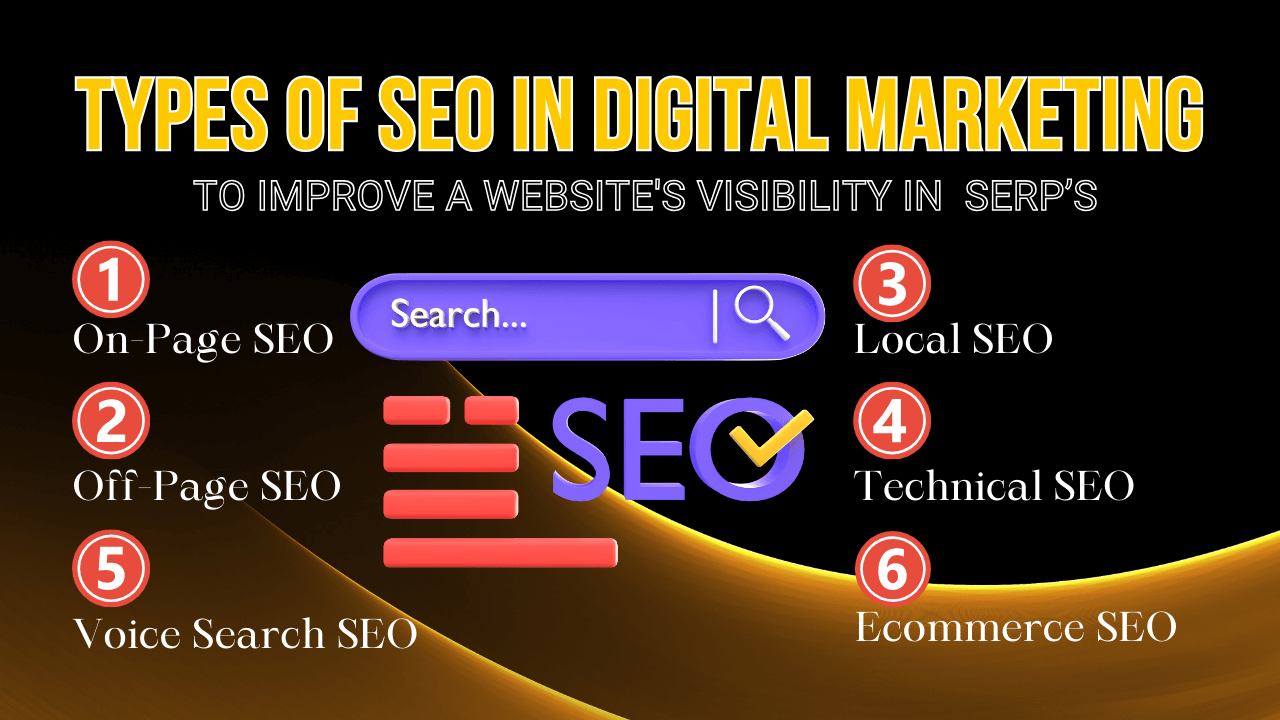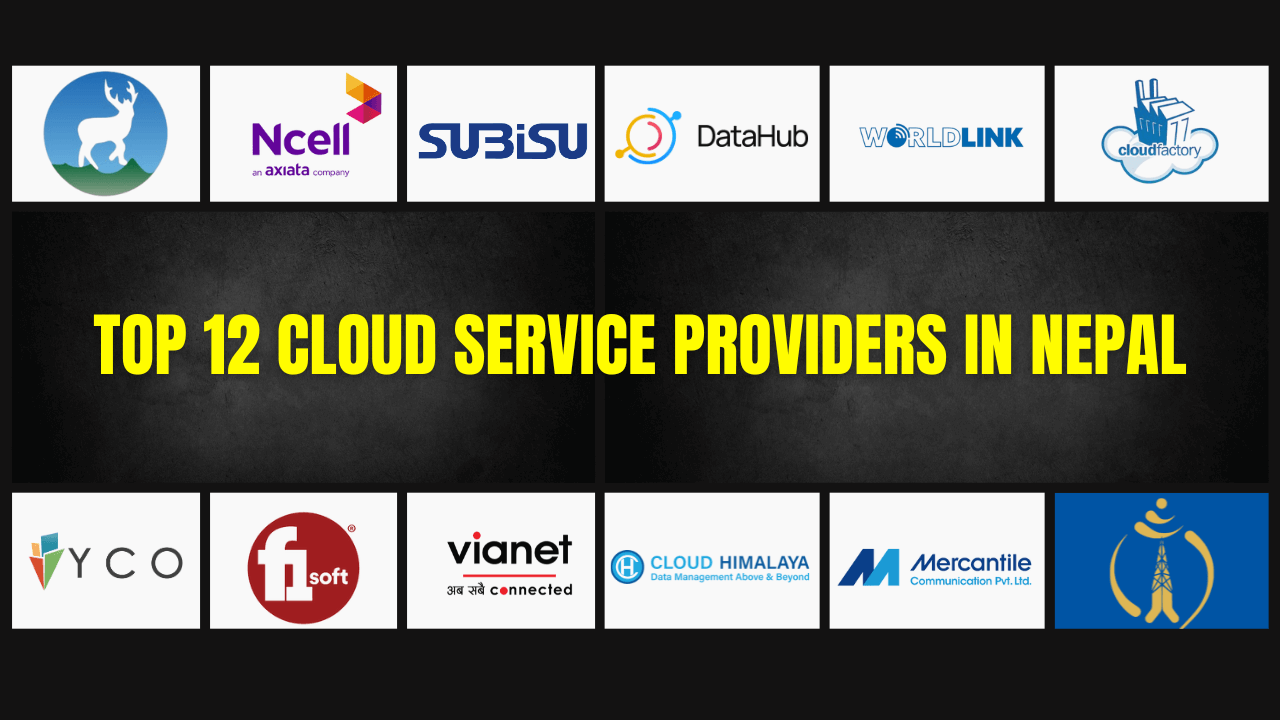How to FIND MY DEAD IPHONE, EVEN IF IT’S OFF?
7 months agoPage Authority Vs. Domain Authority – Which has more weight?
1 year ago -
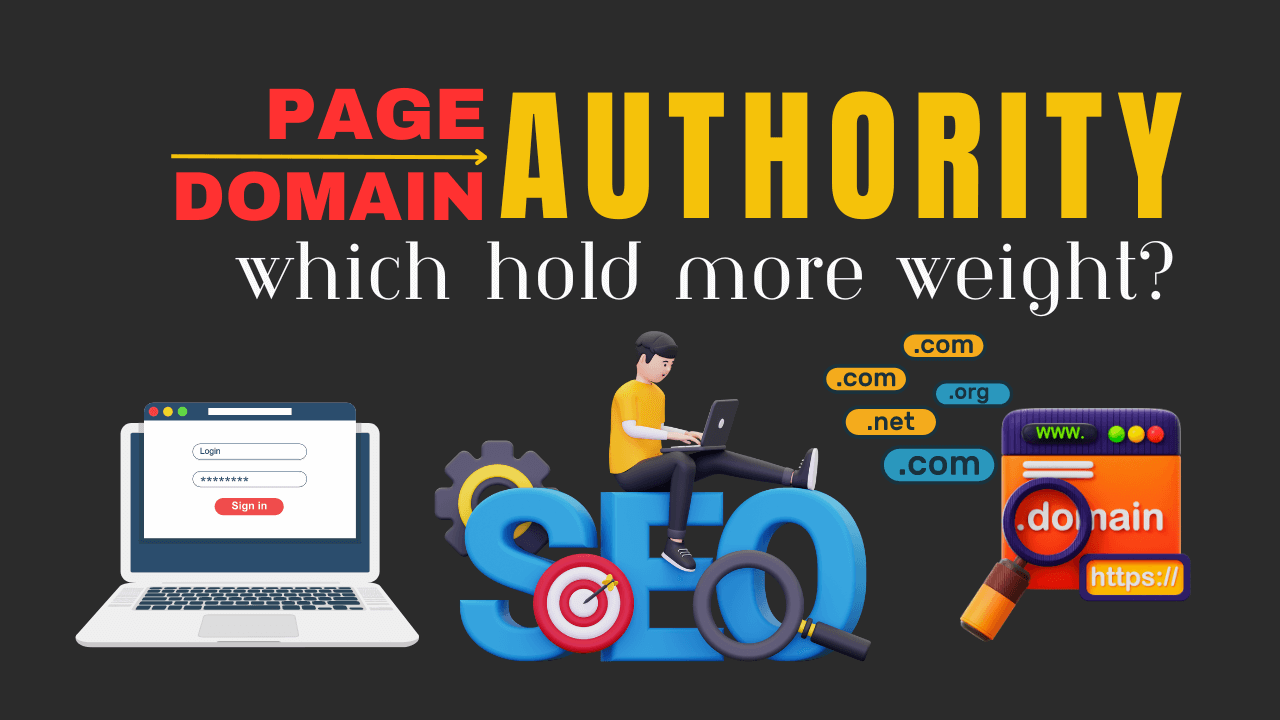
Page authority vs Domain authority are two metrics developed by Moz that aim to quantify the ranking authority and power of a web page or website domain. Search engine optimization (SEO) is constantly changing, with two key metrics often being the focus: Page Authority (PA) and Domain Authority (DA). Website owners and marketers frequently wonder which of these matters matters more for achieving higher search rankings.
To understand domain authority vs page authority, we need to examine these metrics in detail, looking at what they mean, how they differ, and how they affect SEO tactics. By researching PA and DA, we can gain clarity on how these factors should influence optimization plans as we navigate the fluctuating SEO landscape. Considering the suggestion between page-specific authority and domain-wide authority sheds light on this central question in modern SEO.
Table of Contents
What is Page Authority?
Page Authority is a metric developed by Moz that predicts how well a specific page will rank on search engine result pages (SERPs). It ranges from 0 to 100, with higher scores indicating a greater likelihood of ranking well. Page Authority is affected by various factors, including the number and quality of inbound links, content relevance, and user engagement metrics.
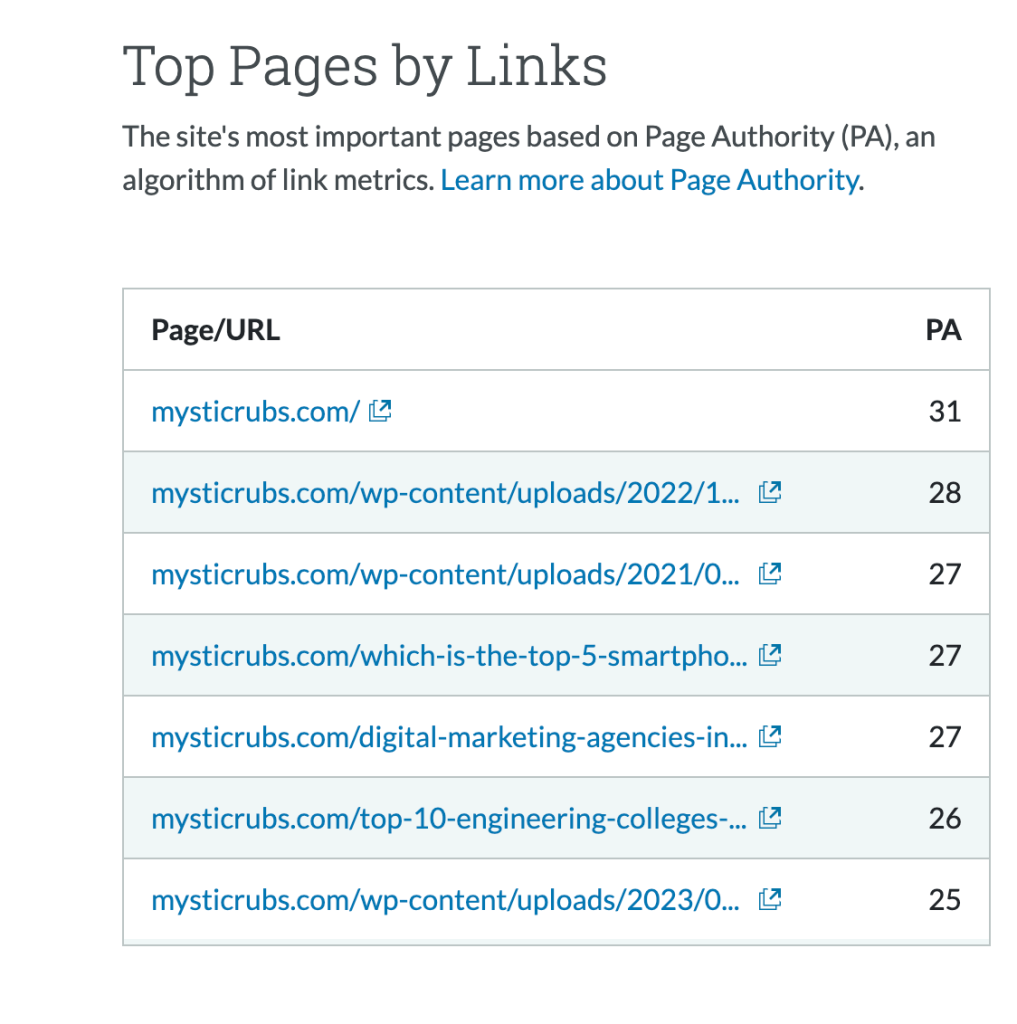
Factors Affecting Page Authority
1. Quality Backlinks
One of the primary factors affecting Page Authority is the quality and quantity of backlinks pointing to a particular page. High-authority websites linking to your content can significantly boost your Page Authority.
Promoting your Page Authority hinges on acquiring backlinks, but the key lies in quality over quantity. Partnering with reputable websites within your niche or related industry is crucial. Avoid link exchanges with low-ranking sites, as they could harm your optimization efforts. Acquire a reciprocal relationship by collaborating with high PA or DA sites, creating a win-win scenario for both parties.
2. Prolific Content Creation
Quality content serves as the backbone for increased traffic and natural backlinks. Consistently publishing informative and engaging material establishes your authority in the field.
Regular posting not only aligns with search engine preferences but also broadens your keyword opportunities. Consider executing an editorial calendar to systematically plan and create content for your website.
3. Analyze Competitor Performance
Use tools like Moz to assess the Page Authority (PA) and Domain Authority (DA) of competitors. This valuable insight enables you to identify areas where competitors excel and strategize ways to outperform them. Crafting content that surpasses your competitors enhances your PA, contributing to a stronger online presence.
4. Update Older Content
Boosting Domain Authority involves revisiting pages with low Page Authority scores. Update content, integrate new keywords, and include relevant backlinks to align with current standards. Consider expanding shorter posts, incorporating multimedia elements like videos, or adding interactive content.
Refreshing outdated content is a strategic move to maintain relevance and enhance overall page authority.
5. Leverage Diverse Channels for Content Sharing
Diversify your backlink sources by sharing content on various platforms, including social media. Every share and interaction contributes to your backlink count, progressively elevating both domain authority vs page authority.
Embrace the expansive reach of social media to amplify your content’s impact on search engine result pages (SERPs).
6. Show Clear of Black Hat SEO Practices
Maintain integrity in your SEO efforts by avoiding black hat techniques. Unethical practices may yield short-term gains but often lead to long-term repercussions, including potential blacklisting by search engines. Prioritize ethical SEO practices, ensuring that your backlinking strategies are transparent and aligned with industry standards. Upholding the highest standards safeguards your website’s standing and user trust.
What is Domain Authority?
Domain Authority, also developed by Moz, is a metric that predicts how well an entire domain or website will rank on SERPs. Like Page Authority, it ranges from 0 to 100, with higher scores indicating a stronger likelihood of ranking well across all pages on the domain.
Boosting your website’s Domain Authority (DA) is instrumental in securing higher rankings and increased organic traffic. Explore these effective methods to enhance your DA and establish a robust online presence.
Factors Affecting Domain Authority
1. Develop High-Quality Backlinks from Authoritative Sources
Backlinks are a cornerstone in domain authority calculation, and acquiring links from authoritative sites is essential. Research your top referral sources, focusing on sites driving significant traffic. Identify similar domains that could benefit from linking to your content and initiate outreach efforts.
Utilize tools like MonsterInsights, especially if you’re a WordPress user, to effortlessly track referral sources and optimize your link-building strategy.
2. Prepare Compelling Content with Link-Worthy Appeal
Creating valuable content that resonates with your audience is key to garnering backlinks. High-authority sites, such as educational institutions or government bodies, are more likely to link to content that provides genuine value.
Analyze your site’s popular pages and user engagement metrics to identify content themes. Replicate and expand on successful content to attract more backlinks, thereafter, promoting your linking root domains and maintaining DA.
3. Conduct a Thorough Site Audit and Remove Toxic Links
While inbound links are important, harmful links can adversely affect your website’s DA and incur damages. Conduct a comprehensive audit using SEO tools to identify and remove toxic links. Google Search Console offers the option to disavow harmful links, signaling search engine crawlers to disregard them during indexing.
Maintain a clean link profile to safeguard your website’s authority and uphold its reputation.
4. Optimize Website Structure and Improve User Experience
A user-friendly website structure positively impacts both search engine crawlers and users. Develop a sitemap to aid search engines in navigating and indexing your pages efficiently. Prioritize mobile optimization, considering Google’s mobile-first approach, and ensure fast loading times.
Secure your site with SSL certificates and leverage WordPress security plugins like Sucuri for added protection. An optimized structure and enhanced user experience contribute to improved DA.
5. Strengthen Internal Linking to Improve User Experience and SEO
Improve your site’s user experience and SEO by focusing on internal linking. Direct users to related pages within your site to keep them engaged and facilitate search engine crawling. A well-structured internal linking strategy passes “link juice” from one page to another, reinforcing trustworthiness in the eyes of search engines.
WordPress users can employ plugins like All in One SEO for automated internal link reports and relevant linking suggestions.
6. Prioritize Accurate Website Analytics
Accurate website analytics are foundational for understanding site performance and making informed decisions. Install MonsterInsights for WordPress users to access user-friendly Google Analytics reports.
Choose a suitable license level or start with the free version to gain insights into your site’s dynamics, ultimately aiding your journey towards increased Domain Authority.
Incorporating these strategies into your technical vs local SEO arsenal will not only elevate your website’s Domain Authority but also position it as a formidable contender in the competitive digital landscape.
Page Authority Vs Domain Authority (PA vs DA)
Here are the key differences between Page Authority vs Domain Authority in the given table:
| Page Authority | Domain Authority |
|---|---|
| Measures the authority of a single page | Measures the authority of an entire domain |
| Score is based on the quality and quantity of inbound links to that specific page | Score is based on the overall quality and quantity of links to all pages on a domain |
| Changes more slowly, as many new links must be built | A new page starts with a default PA of 1 |
| Max PA is 100 | Max DA is 100 |
| Multiple pages on a site can have varying PA scores | Only one DA score per domain |
| PA passes link equity (ranking power) to other pages on your site | DA does not pass link equity to your site’s pages |
| Easy to manipulate with links to one page | Difficult to manipulate with links across many pages |
| Affects organic rankings of a specific page | Affects organic rankings of all pages on a site |
| Change frequently as new links come and go | Changes more slowly as many new links must be built |
Comparing the Weight between Page Authority vs Domain Authority
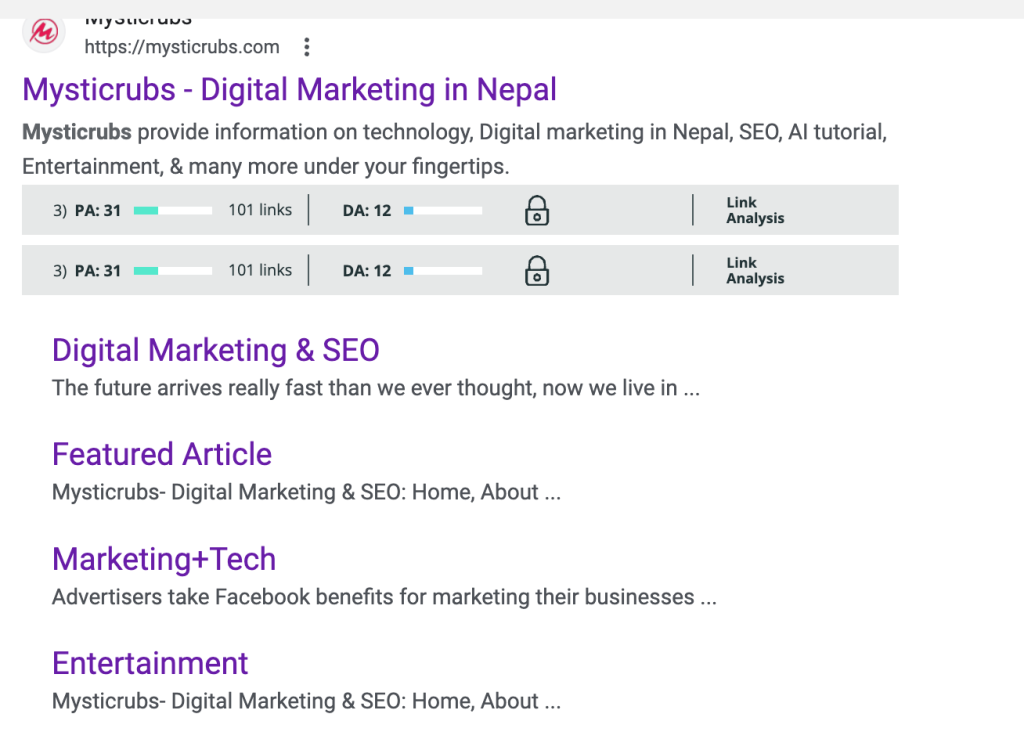
Domain and Page Authority Checker
The Significance of Page Authority
Page Authority is crucial for individual pages to compete effectively on SERPs. It allows website owners to identify and optimize high-performing pages, driving targeted traffic and improving overall SEO performance.
The Impact of Domain Authority
Domain Authority, on the other hand, provides a holistic view of a website’s potential to rank across various pages. A high Domain Authority suggests a trustworthy and authoritative website, potentially benefiting all its pages.
Which Holds More Weight, Page Authority vs Domain Authority?
Determining whether domain authority vs page authority holds more weight depends on the specific goals and context of your SEO strategy.
Scenario 1: Focusing on Specific Pages
If you aim to optimize specific pages for targeted keywords, Page Authority is essential. Strengthening the Page Authority of individual pages ensures they stand out in search results.
Scenario 2: Building a Trustworthy Brand
For businesses looking to establish themselves as authoritative and trustworthy entities, a high Domain Authority is essential. It signifies to search engines that the entire website is a reliable source of information.
Conclusion
In the dynamic world of SEO, both Page authority vs Domain authority play key roles in determining a website’s success in search rankings. While Page Authority is crucial for optimizing specific pages, Domain Authority offers a broader perspective on a website’s overall standing. Striking a balance between the two metrics ensures a comprehensive SEO strategy that caters to both targeted page optimization and building a credible online presence.
- Comparison of Top 10 Cloud Service Providers in Nepal 2025
- AI vs Human Copywriting: 10 Reasons Why Human Copy is Better Than AI
- Are you looking for Best Phone under 35000 in Nepal?
- 10 Types of Google Ads You Should Know About!




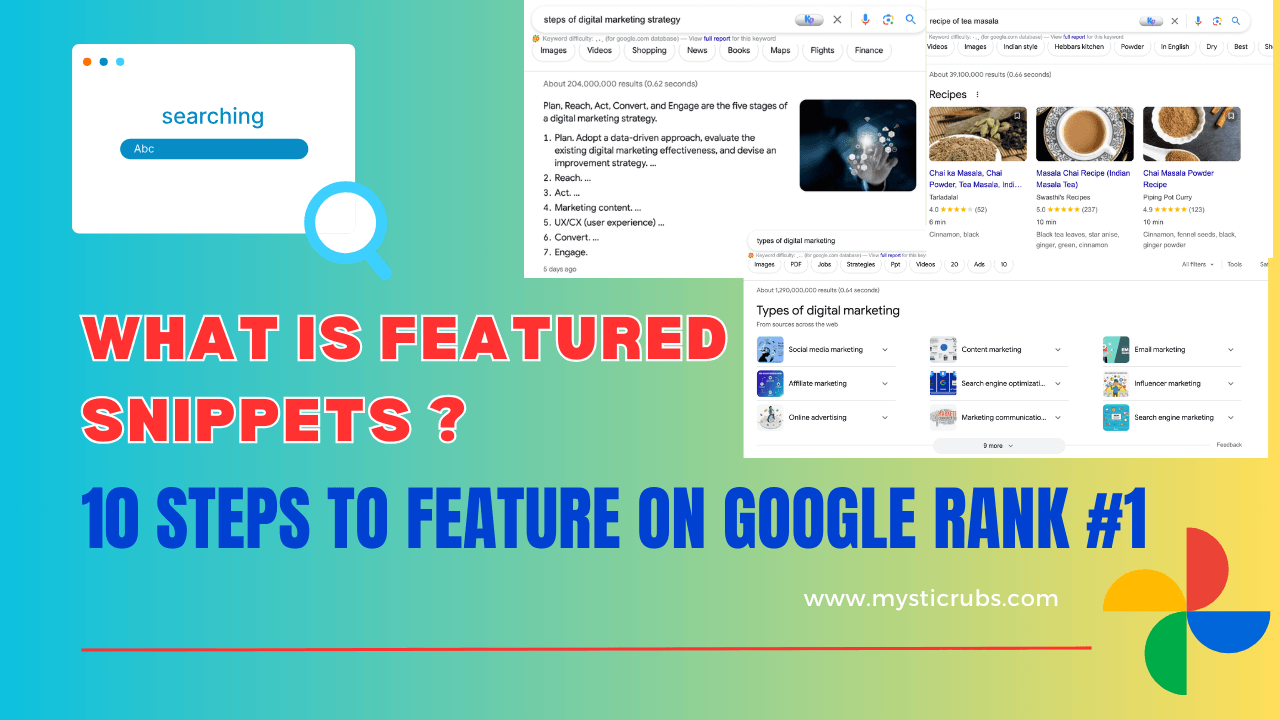
![[2025 Updated] Top 10 Digital Marketing Agencies in Nepal Ranked!](https://mysticrubs.com/wp-content/uploads/2022/05/top-10-digital-marketing-company-in-nepal.png)
